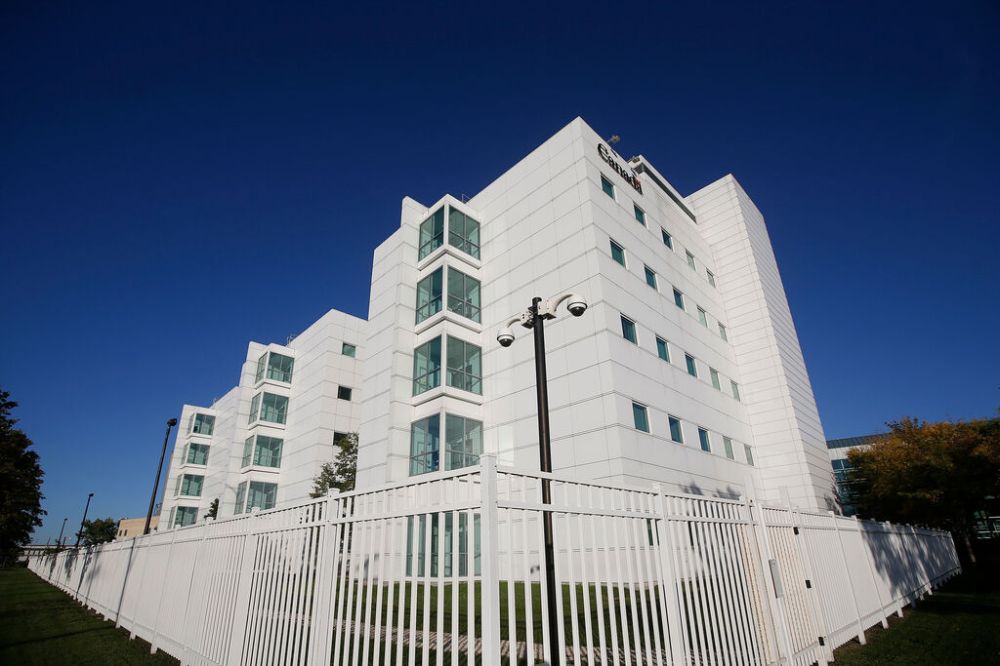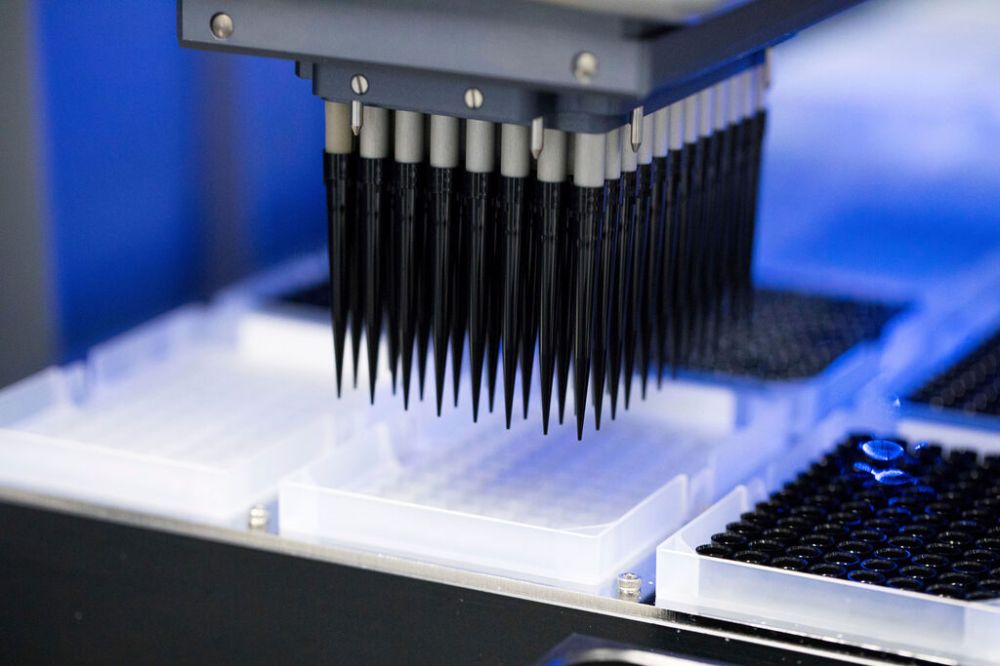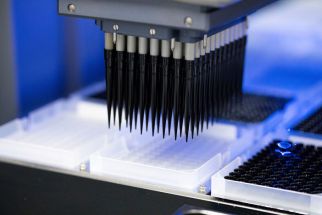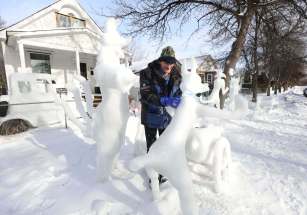Manitoba’s 18-day wait to find COVID-19 variant ‘insane’ Province urged to recruit more labs, lift veil of secrecy
Read this article for free:
or
Already have an account? Log in here »
To continue reading, please subscribe:
Monthly Digital Subscription
$0 for the first 4 weeks*
- Enjoy unlimited reading on winnipegfreepress.com
- Read the E-Edition, our digital replica newspaper
- Access News Break, our award-winning app
- Play interactive puzzles
*No charge for 4 weeks then price increases to the regular rate of $19.00 plus GST every four weeks. Offer available to new and qualified returning subscribers only. Cancel any time.
Monthly Digital Subscription
$4.75/week*
- Enjoy unlimited reading on winnipegfreepress.com
- Read the E-Edition, our digital replica newspaper
- Access News Break, our award-winning app
- Play interactive puzzles
*Billed as $19 plus GST every four weeks. Cancel any time.
To continue reading, please subscribe:
Add Free Press access to your Brandon Sun subscription for only an additional
$1 for the first 4 weeks*
*Your next subscription payment will increase by $1.00 and you will be charged $16.99 plus GST for four weeks. After four weeks, your payment will increase to $23.99 plus GST every four weeks.
Read unlimited articles for free today:
or
Already have an account? Log in here »
Hey there, time traveller!
This article was published 10/02/2021 (1763 days ago), so information in it may no longer be current.
OTTAWA — A respected microbiologist says it’s unacceptable that it took 18 days for Manitoba health officials to discover they had a carrier of the U.K. variant of COVID-19.
“For us to just be waiting 18 days to get sequencing is insane,” said Dr. Kelly MacDonald, who argued the province has to be more transparent about how it searches for variants.
The province said since the case emerged, it has stepped up screening to detect possible variants.
But MacDonald and her colleagues say the province could speed up the process by leaning on technicians at universities and other labs in Manitoba.
“If it’s a money or a manpower issue, that is not an adequate excuse,” said MacDonald, the infectious disease research chair for the University of Manitoba’s microbiology department, who stressed she was not speaking on behalf of the university.
Variants that have taken hold in the United Kingdom, South Africa and Brazil appear to be more infectious due to genetic changes that make spike proteins better at binding to cells than the original COVID-19 virus.
Manitoba’s first known case of a variant involves a Winnipegger who came home to Manitoba on Jan. 19, after visiting Africa and then Europe.
“For us to just be waiting 18 days to get sequencing is insane.”
– Dr. Kelly MacDonald
The traveller took a test for COVID-19 two days later. It came back positive and was sent for sequencing, a process that involves dissecting the gene structure to look for mutations. In Manitoba, the procedure is conducted for each case linked to international travel.
Scientists at the National Microbiology Laboratory in Winnipeg found the B.1.1.7 variant, which has taken hold in Britain, and informed the province on Monday evening, 18 days after the test.
Dr. Brent Roussin, Manitoba’s chief public health officer, said Tuesday officials believe no other case emerged from that traveller.

The province said that since that case was found, it has scaled up screening for variants, which is a faster, but less specific procedure, compared with sequencing.
“Basically anything that comes back positive in Manitoba, our provincial lab is able to screen for the B.1.1.7 variant,” said Dr. Jazz Atwal, acting deputy chief public health officer, on Wednesday.
Specimens that are suspected of having a variant are then sent for sequencing, where it is determined whether there is a variant, and if so, which one.
“The major problem with doing sequencing is not the actual equipment; it’s the expertise to analyze the data.”
— Dr. Kelly MacDonald
A Health Department spokeswoman said the Cadham Provincial Laboratory expects to get equipment this week that will eventually allow it to screen for all variants, instead of just the U.K. variant.
“(The lab) intends to be screening most or all cases for specific variants in the next week or two,” the spokeswoman wrote.
That implies that not all positive cases are currently screened, unlike in Ontario and Minnesota.
Meanwhile, Manitoba is selecting about five per cent of positive samples to be fully sequenced, a process that currently takes weeks. Other provinces have plans to do so for 10 per cent of samples, but not Manitoba.

MacDonald said the screening and sequencing processes would take less time if technicians with laboratory skills, such as at universities, were included in the effort.
“We’ve got lots of people, and Red River (College) is pumping out people who have molecular skills,” she said, noting that private labs have also hired people to help screen for variants.
“The major problem with doing sequencing is not the actual equipment; it’s the expertise to analyze the data.”
Dr. Jeffrey Marcus, a University of Manitoba biology professor, said he’s puzzled none of his colleagues has been asked to help the province with sequencing.
“We do have the equipment here in the province… that could be potentially deployed, to deal with this some of this stuff more quickly.”
— Dr. Jeffrey Marcus, University of Manitoba biology professor
Instead, the province relies on the weeks-long process conducted by the national lab, which he said gives these highly contagious variants more time to wreak havoc.
“That could buy us a couple of weeks of warning, and that would result in our ability to clamp things down that much sooner,” Marcus said.
“We do have the equipment here in the province… that could be potentially deployed, to deal with this some of this stuff more quickly.”
The province has so far declined to do interviews about its process for detecting variants.
Atwal’s statement on Wednesday was the first time the province disclosed that it screens COVID-19 samples for variants, after spokespeople dodged this question in written queries from the Free Press.
MacDonald said Manitoba’s pandemic response is constantly cloaked in secrecy, leaving both the public and experts scratching their heads.
“It’s all about transparency, sharing with the public some transparency that you’re taking into account these things and working on them,” she said.
dylan.robertson@freepress.mb.ca
History
Updated on Wednesday, February 10, 2021 7:17 PM CST: Adds photo
Updated on Thursday, February 11, 2021 9:00 AM CST: Minor copy editing changes







